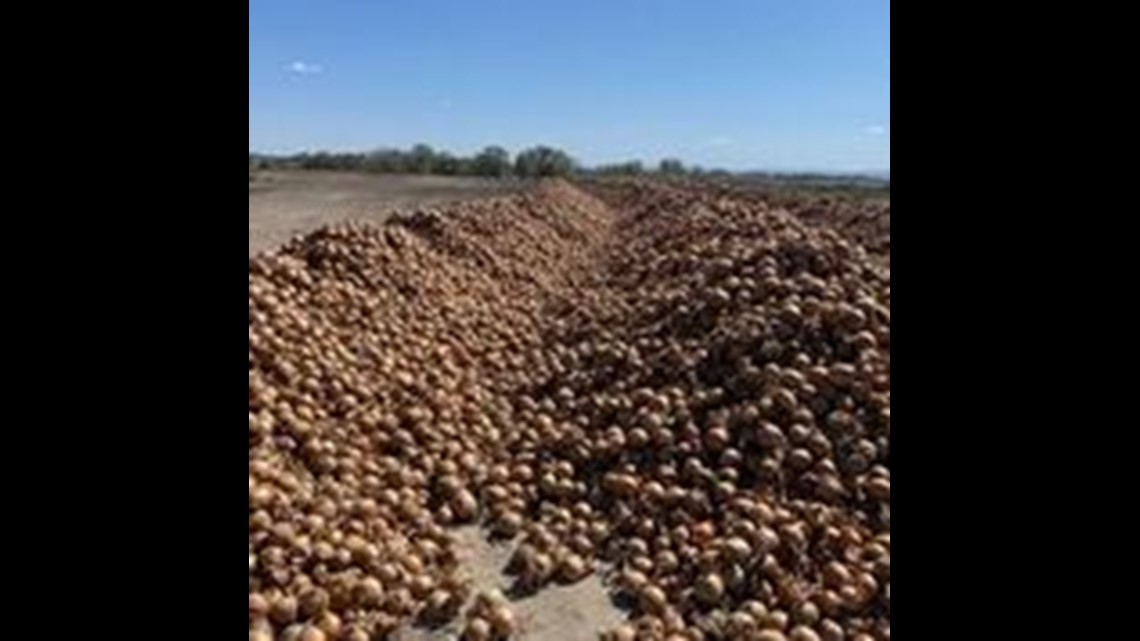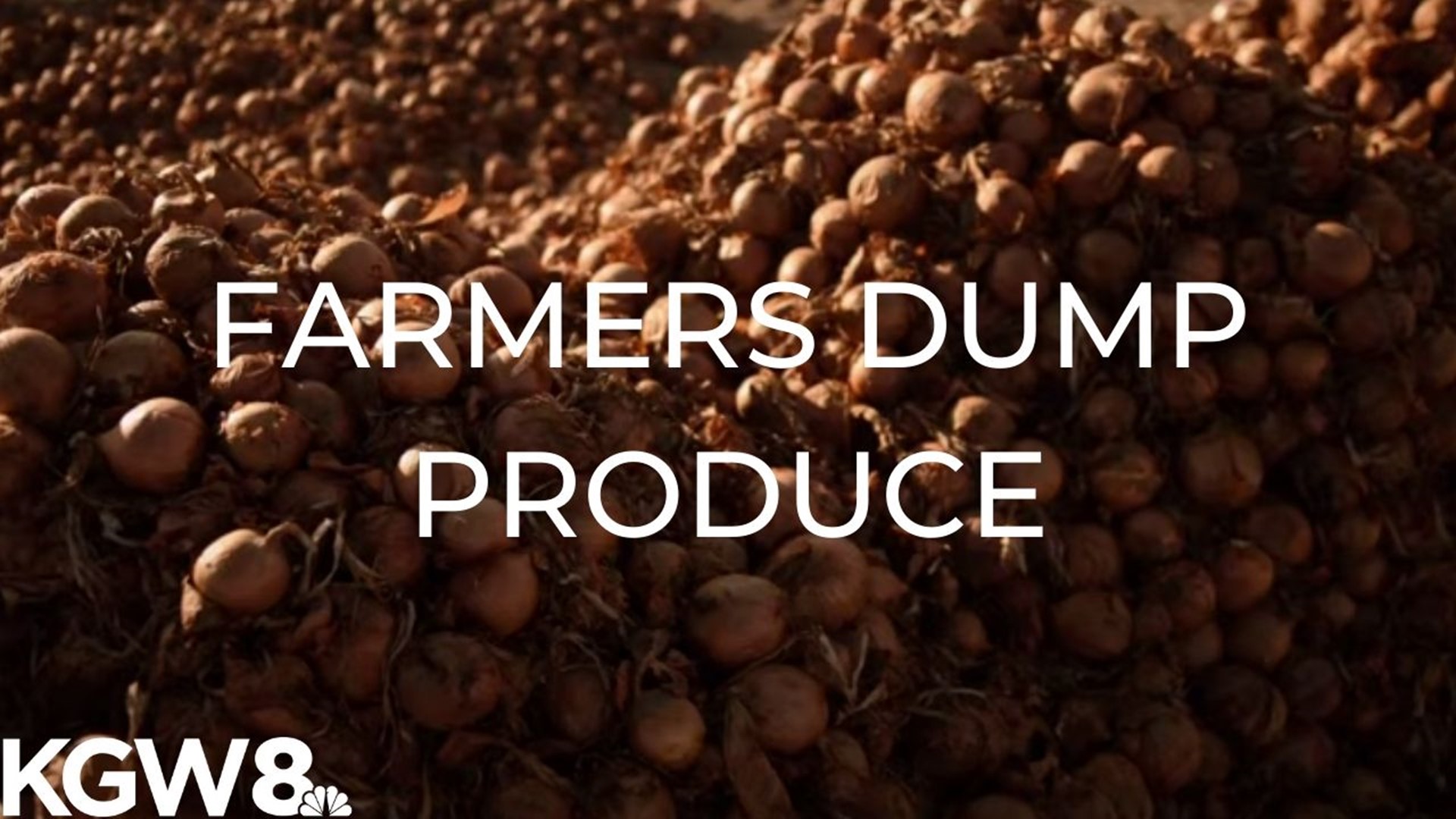PORTLAND, Ore. — It's a shame to see, millions of onions dumped in a trench to spoil. Shay Myers is a third-generation farmer on the Oregon-Idaho border who says he is being forced to throw out tons of produce. Owyhee Produce grows enough onions to feed 7 million Americans for a year.
Most of the crop is normally served at restaurants. But that business has all but vanished.
"Even when the restaurants closed we shipped at 100% of normal for two weeks. Now, we’re five, ten, maybe 15% of normal," said Myers.
That's become the new norm across the country amid the coronavirus pandemic. Because big customers, like restaurants and schools, are closed, many produce makers are having to dump their goods, from onions in Oregon to green beans tilled in the fields of Florida to milk in Wisconsin.


At least for Myers, this is near the end of the onion run, before they'll plant again here. But it's hard to throw out a lot of perfectly good produce, Myers said, especially when onions are still coming into the country from Mexico.
"It’s a really painful thing, but more than anything it’s frustrating. I think people need to understand the ramifications of COVID-19 but also of the decisions that they make and the supply chain. What it takes to get your produce from one side of the country to the other, or one side to the state to the other," said Myers.
If there is a bright spot, some smaller local farms are doing OK. Sun Gold Farm in Forest Grove is doing more pre-ordered delivery and drive-through business, at farmer's markets. They appreciate the support.
"Farmers markets sales being down just a little bit but still open, it’s more important now more than ever to support that local business, that local farmer because boy we got it, it’s a phenomenal growing season right now," said Chris Hertel.
And at the Helvetia Farm Market, they're practicing social distancing but seeing more business, as people cook healthy, for themselves.
"The demand has really increased. People are looking for food that’s local. They want to shop in a place they don’t feel is crowded," said Geoff Scott.
Now, those tending the fields wonder what "back to normal" will look like when the coronavirus crisis fades.

